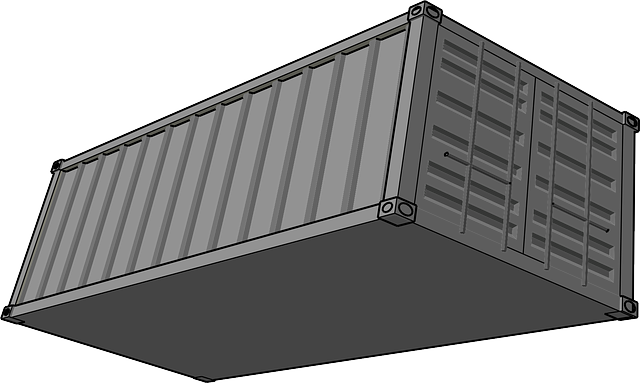Independent trucking and transportation businesses are turning to bobtail insurance coverage as a cost-effective solution for managing operations, offering significant savings by providing liability protection only when vehicles are not in active service. By leveraging this specialized insurance type, operators can enjoy lower costs without sacrificing essential protection, optimizing expenses and navigating industry risks effectively. Strategic approaches like adopting technology, negotiating bulk discounts, optimizing routes, and investing in fuel-efficient vehicles further contribute to cost savings, making bobtail insurance coverage an attractive choice for budget-conscious entrepreneurs in competitive markets.
In today’s competitive landscape, independent operators are constantly seeking cost-effective solutions. This article guides you through a strategic approach to optimize expenses without compromising quality. We delve into essential topics like understanding bobtail insurance coverage for significant savings, exploring alternatives to traditional insurance policies, and examining real-world case studies of successful cost reduction initiatives. By implementing these strategies, operators can navigate their industry with enhanced financial agility.
Understanding Bobtail Insurance Coverage for Cost Savings

Many independent operators, especially those in trucking or transportation businesses, often seek cost-effective solutions to manage their operations efficiently. One such option gaining traction is understanding and leveraging Bobtail Insurance Coverage. This specialized insurance type offers significant savings by providing liability protection for when a truck or vehicle is not engaged in active service, reducing premiums compared to traditional policies that maintain constant coverage.
By utilizing Bobtail Insurance Coverage, operators can enjoy lower costs without compromising on essential protection. When a vehicle is parked or idle, the risk of accidents or liabilities decreases substantially, making it an ideal strategy for cost-conscious independent operators. This approach allows businesses to optimize their expenses while navigating the unique risks associated with the trucking industry.
Strategies Independent Operators Can Employ for Budget-Friendly Operations

Independent operators often face unique challenges when it comes to managing costs, but there are several strategic approaches they can adopt to operate more budget-friendly. One key area is optimizing insurance coverage, such as exploring bobtail insurance options. Bobtail insurance offers reduced rates for specific types of vehicles or operations, allowing operators to save on their overall insurance expenses without compromising safety.
Additionally, these operators can streamline operations by adopting technology and digital solutions. Implementing efficient dispatch systems, GPS tracking, and online booking platforms can reduce administrative burdens and cut costs associated with manual processes. Moreover, negotiating bulk discounts with suppliers, regularly reviewing and optimizing routes, and prioritizing fuel-efficient vehicles or alternative energy sources can all contribute to significant savings over time.
Exploring Alternatives to Traditional Insurance Policies

In today’s competitive landscape, independent operators are constantly seeking cost-effective solutions. One area where significant savings can be achieved is through exploring alternatives to traditional insurance policies. Many small business owners are turning towards bobtail insurance coverage, a specialized option designed for specific risks and needs. This innovative approach offers tailored protection at a fraction of the cost of conventional policies, making it an attractive choice for budget-conscious entrepreneurs.
By opting for bobtail insurance, operators can gain access to comprehensive liability and property coverage while mitigating potential financial burdens. This type of insurance is particularly beneficial for businesses with unique operational risks or those operating in specialized industries. With its flexibility and competitive pricing, bobtail insurance provides a compelling alternative, allowing independent operators to optimize their expenses without compromising on essential protection.
Case Studies: Successful Cost Reduction Initiatives by Independent Professionals

Many independent operators have successfully implemented cost-saving strategies, proving that reducing expenses doesn’t mean compromising quality or growth. For instance, in the transportation industry, drivers often turn to tailored insurance solutions like bobtail insurance coverage to minimize financial risks and operational costs. Bobtail insurance specifically caters to when a truck is being used for local pick-ups and drop-offs, offering significant savings compared to full fleet policies, especially for part-time or independent operators.
Another inspiring example comes from freelance graphic designers who have mastered the art of efficient outsourcing. By carefully selecting global talent through online platforms, they secure high-quality design services at a fraction of the cost of in-house teams. This strategy not only reduces overhead but also allows them to access diverse creative skills, ensuring their projects remain both innovative and budget-friendly. These case studies demonstrate that independent professionals can thrive while adopting smart, cost-effective measures.
By understanding and leveraging bobtail insurance coverage, independent operators can significantly reduce costs without compromising on essential protections. Exploring alternative insurance strategies, such as tailored policies and innovative approaches, further enhances budget-friendly operations. The case studies presented demonstrate that successful cost reduction initiatives are achievable, providing valuable insights for professionals seeking to optimize their financial strategies. Embracing these cost-effective options not only benefits individual operators but also contributes to a more robust and resilient independent sector.
